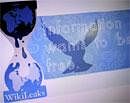
The women - four Australians, a Briton and a Filipino - are among 23 people based in Australia, alleged by Australian Security Intelligence Organisation (ASIO) and the US State Department to be connected to al-Qaeda in the Arabian Peninsula (AQAP).
The latest batch of confidential and secret cable, written by the US embassy in Canberra in January last year, was sent to US intelligence agencies and 15 American diplomatic stations around the world.
"Recent threat information suggests (al-Qaeda in the Arabian Peninsula) is looking to identify a female for a future attack," the cable states referring to the organisation's most internationally active branch, local media reported today.
The document claims al-Qaeda has been looking to recruit women for future terrorist attacks.
Australia has flayed whistle-blowing site, calling it "incredibly irresponsible" for publishing the cable detailing Australians with suspected links to Yemeni terrorism.
Wikileaks cables have also reportedly revealed there was a split between the Government and Reserve Bank over the handling of the economy during the global financial crisis.
The branch, referred to as AQAP, is believed to have played a role in most attempted attacks in the West since 2009.
Of particular concern to intelligence agencies is a belief that many on the list have been in contact with AQAP's chief propagandist and radical preacher, Anwar al Awlaqi, a US citizen believed to be a key figure in AQAP
Some of the people named in the secret US diplomatic cable, including Sheikh Abdel Zoud, the cleric at Sydney's Belmore Mosque, have strongly rejected the claims, saying they bear little relation to the truth.
There are concerns that those on these lists disappear off "the passport radar" in countries such as Malaysia and the United Arab Emirates.
They then travel to countries like Yemen and Pakistan for terrorism training.
The report said the quality of the information has been questioned by Sydney cleric. He was quoted as saying that he had no idea why he was on the list as he had never been to Yemen, had never spoken to al Awlaqi, sent him money nor visited his website.
The 23 names were given by ASIO to the US, which put them on the "Visas Viper" programme, a database used for watch-listing suspected terrorists.
Eleven were banned from flying in the US, and the other 12 were subject to increased security screening.
The government has termed the publication of the information has been could compromise Australia's national security -- or inhibit the ability of intelligence agencies to monitor potential threats -- is incredibly irresponsible.
The government has condemned the publication of the document as it "could seriously impact Australia's national security."
"The publication of any information that could compromise Australia's national security -- or inhibit the ability of intelligence agencies to monitor potential threats -- is incredibly irresponsible," Attorney-General Robert McClelland was quoted as saying in the media.